第86章 Chapter 13 (6)
I can see already that he means to live on excellent terms with all of us during the period of his sojourn in this place. He has evidently discovered that Laura secretly dislikes him (she confessed as much to me when I pressed her on the subject) -- but he has also found out that she is extravagantly fond of flowers. Whenever she wants a nosegay he has got one to give her, gathered and arranged by himself, and greatly to my amusement, he is always cunningly provided with a duplicate, composed of exactly the same flowers, grouped in exactly the same way, to appease his icily jealous wife before she can so much as think herself aggrieved. His management of the Countess (in public) is a sight to see. He bows to her, he habitually addresses her as ‘my angel,' he carries his canaries to pay her little visits on his fingers and to sing to her, he kisses her hand when she gives him his cigarettes; he presents her with sugar-plums in return, which he puts into her mouth playfully, from a box in his pocket. The rod of iron with which he rules her never appears in company -- it is a private rod, and is always kept upstairs.
His method of recommending himself to me is entirely different.
He flatters my vanity by talking to me as seriously and sensibly as if I was a man. Yes! I can find him out when I am away from him -- I know he flatters my vanity, when I think of him up here in my own room -- and yet, when I go downstairs, and get into his company again, he will blind me again, and I shall be flattered again, just as if I had never found him out at all! He can manage me as he manages his wife and Laura, as he managed the bloodhound in the stable-yard, as he manages Sir Percival himself, every hour in the day. ‘My good Percival! how I like your rough English humour!' -- ‘My good Percival! how I enjoy your solid English sense!' He puts the rudest remarks Sir Percival can make on his effeminate tastes and amusements quietly away from him in that manner -- always calling the baronet by his Christian name, smiling at him with the calmest superiority, patting him on the shoulder, and bearing with him benignantly, as a good-humoured father bears with a wayward son.
The interest which I really cannot help feeling in this strangely original man has led me to question Sir Percival about his past life.
Sir Percival either knows little, or will tell me little, about it.
He and the Count first met many years ago, at Rome, under the dangerous circumstances to which I have alluded elsewhere. Since that time they have been perpetually together in London, in Paris, and in Vienna -- but never in Italy again; the Count having, oddly enough, not crossed the frontiers of his native country for years past. Perhaps he has been made the victim of some political persecution? At all events, he seems to be patriotically anxious not to lose sight of any of his own countrymen who may happen to be in England. On the evening of his arrival he asked how far we were from the nearest town, and whether we knew of any Italian gentlemen who might happen to be settled there. He is certainly in correspondence with people on the Continent, for his letters have all sorts of odd stamps on them, and I saw one for him this morning, waiting in his place at the breakfast-table, with a huge, official-looking seal on it. Perhaps he is in correspondence with his government? And yet, that is hardly to be reconciled either with my other idea that he may be a political exile.